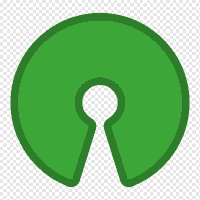
Olaris
- 0 ratings

Olaris is an open-source, community driven, media manager and transcoding server.
Self-host this app for $0.99/mo only!

This is all pre-release code, continue at your own peril.Olaris is an open-source, community driven, media manager and transcoding server. The main interface is the olaris-react project although in due time we hope to support multiple clients / applications.
Our core values are:
We want Olaris to be a community project which means we will heavily prioritise features based on our user feedback.
We will work on features until they are perfect (or as close to it as possible). We would rather have a product where three features work really well than a product with 30 unfinished features.
This does not mean we won't work in parallel, it simply means we will not start anything new until we are happy the new feature works to a high standard.
We don't want to collect metadata, we don't want to sell metadata your data is yours and yours alone.
Our sole focus is on video and video alone, anything that does not meet this requirement will not be considered. This means for example we will never add music support due to different approach that would be required throughout the application.
Everything we build should be open-source. We feel strongly that more can be achieved with free open-source software. That's why we are aiming to be and to remain open-source instead of open-core where certain features are locked behind a paywall.
/optsudo unzip olaris-linux-amd64-v0.3.0.zip -d /opt/olaris
Replace the name of the zipfile with the name of the file you downloaded.
Olaris can be configured via configuration file, environment variables, or command-line flags. An olaris.toml.sample configuration file is included in the docs/ folder; rename it to olaris.toml and place in $HOME/.config/olaris. You can also override the configuration directory location with the OLARIS_CONFIG_DIR environment variable or the --config_dir command-line flag.
If you want to configure Olaris using environment variables, the variables currently supported are listed below.
OLARIS_CONFIG_DIR: default configuration file directory (including database files)OLARIS_DEBUG_STREAMINGPAGES: whether to enable debug pages in the streaming server (default false, overrides the debug.streamingPages configuration value)OLARIS_DEBUG_TRANSCODERLOG: whether to write transcoder output to logfile (default true, overrides the debug.streamingPages value from configuration file)OLARIS_SERVER_PORT: http port (default 8080, overrides the server.port configuration value)OLARIS_SERVER_VERBOSE: verbose logging (default true, overrides the server.verbose configuration value)OLARIS_SERVER_DIRECTFILEACCESS: whether accessing files directly by path (without a valid JWT) is allowed (default false, overrides the server.directFileAccess configuration value)OLARIS_DATABASE_CONNECTION: the database connection string Olaris should use to store metadata for the libraries (default to the default SQLite file path, overrides the database.connection configuration value). The connection string has to be in the following format: engine://<connection string data>. The connection string data can be different for each database, please refer to GORM's documentation for more information about compatible databases.mysql://user:password@/dbname?charset=utf8&parseTime=True&loc=LocalConfiguration file settings override the defaults in the code.
Environment variable settings override the settings found in the configuration file.
Command-line arguments override everything; run olaris help to see the command-line documentation.
To run Olaris as a daemon you may use the supplied systemd unit file:
mkdir -p ~/.config/systemd/user/
cp /opt/olaris/doc/config-examples/systemd/olaris.service ~/.config/systemd/user/
systemctl --user daemon-reload
systemctl --user start olaris.service
To start Olaris automatically:
# Allow systemd to start in user mode without a login session
sudo loginctl enable-linger $USER
systemctl --user enable olaris.service
The following command runs Olaris in a Docker container under your own user‘s UID, ensuring that the Olaris config files end up in your home directory with the correct permissions. It exposes Olaris on port 8080 only on your local machine.
The command below mounts ~/Videos to /var/media in the container --- please update this path to match the location of your media files. When you create a library in Olaris, please keep in mind that Olaris is running inside the container and will see your media at /var/media/.
mkdir -p ~/.config/olaris ~/.config/rclone
docker run \
-p 127.0.0.1:8080:8080/tcp \
-v $HOME/media/:/var/media \
-v $HOME/.config/olaris:/home/olaris/.config/olaris \
-v $HOME/.config/rclone:/home/olaris/.config/rclone \
-e OLARIS_UID=$(id -u) -e OLARIS_GID=$(id -g) \
olaristv/olaris-server
To run the latest build from our CI (Continous Integration) infrastructure, use the olaristv/olaris-server:from-ci image instead. This will download a new build every time the container is started. Please note that this runs a bleeding-edge development version, which may be horribly unstable!
See the hacking document for instructions on how to build Olaris yourself
Please login to review this project.
No reviews for this project yet.
Kerberos.io is a video surveillance solution, which works w…
Self-Hosted alternative to Twitch and Youtube Live for live…
Closed-circuit television (CCTV) software application which…
Comments (0)
Please login to join the discussion on this project.